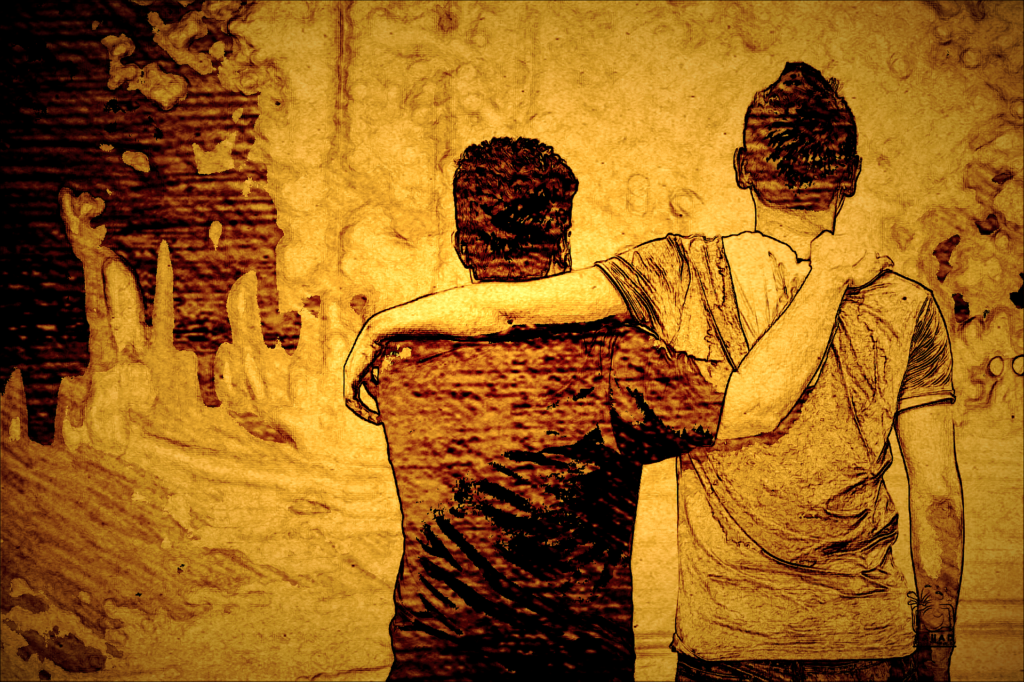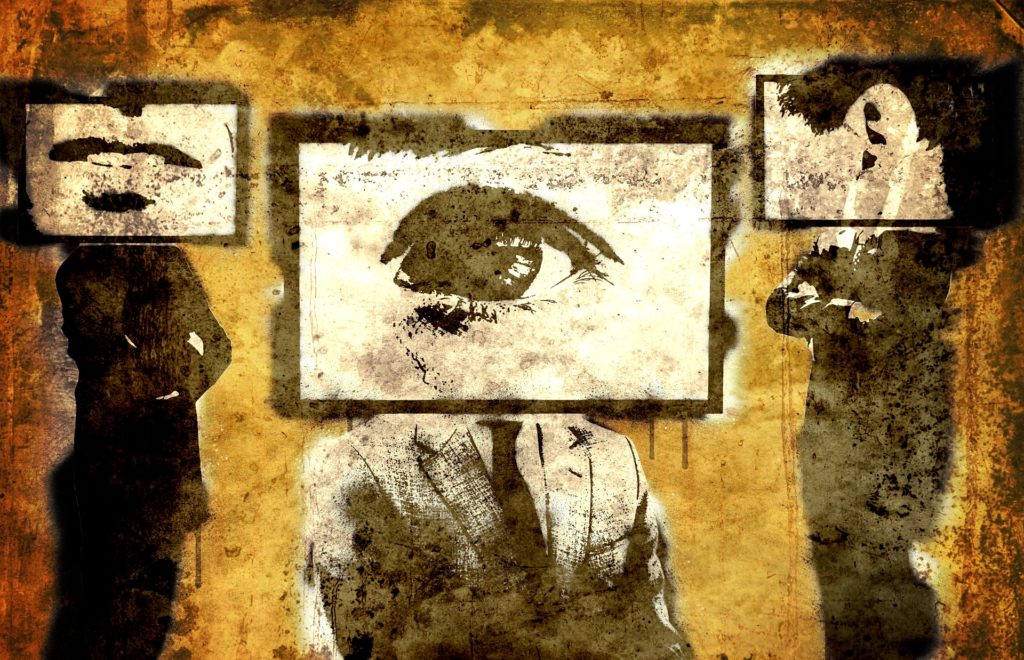Let’s explore the parable of the Speck and the Log. An interpretation of the message about how if we judge others it reflects the standard by which we will also be judged. So judge not, leave judgement to God…
The Hypocrite
Judge Not
Hypocritical Judgment
The parable of the speck and the Log is cautioning us about hypocritical judgement. How can you judge someone else fairly if you do not judge yourself first. Jesus is speaking about a particular kind of judgement. Speaking of those who would point out the shortcomings of others in order to make themselves appear superior in some way. Those who would harshly publicly humiliate or condemn the action of another. And in so doing appear powerful or righteous in their own right. A judgement for the benefit of the judge.
He is warning us that before the aggressive public judgement of another we had better look at ourselves. Looking in the mirror to determine the spirit of our heart. Because if our heart is not pure, if we too are guilty of sins we deserve an even harsher judgement for being a hypocrite.
Showing Compassion
Judge Not

Matthew 7:1-5 (KJV)
1 Judge not, that ye be not judged.
2 For with what judgment ye judge, ye shall be judged: and with what measure ye mete, it shall be measured to you again.
3 And why beholdest thou the mote that is in thy brother’s eye, but considerest not the beam that is in thine own eye?
4 Or how wilt thou say to thy brother, Let me pull out the mote out of thine eye; and, behold, a beam is in thine own eye?
5 Thou hypocrite, first cast out the beam out of thine own eye; and then shalt thou see clearly to cast out the mote out of thy brother’s eye.
The Justifications
Jesus is teaching us about self examination. Is it possible that the reason that we have noticed and become agitated with that sin of another is because we have experience with it ourselves. Is it our own guilt that has enraged us about the sin or fault of the other person?
Are we seeing something in them that we are justifying for ourselves? Something we possibly do ourselves but have “reasons why” it is acceptable for us. And have excuses as to the need for such behaviors in our particular circumstances. However, ignoring the possible justification for someone else.
Compassion for the Sinner
Putting ourselves in “the shoes” of someone else gives us a more realistic understanding of their circumstances. Jesus is telling us to examine our own faults closely, our own sin before we address the sin of another. Understanding our own shortfalls our own weaknesses makes us more likely to feel a connection to the weakness of others. It makes us more compassionate. We are less likely to judge the sinner mercilessly.
The Motives
Judge Not

Luke 6:37-38 (KJV)
37 Judge not, and ye shall not be judged: condemn not, and ye shall not be condemned: forgive, and ye shall be forgiven:
38 Give, and it shall be given unto you; good measure, pressed down, and shaken together, and running over, shall men give into your bosom. For with the same measure that ye mete withal it shall be measured to you again.
The Sin of your Brother
This parable does not appear to prohibit judgement altogether. Though some would argue that fact in it’s interpretation. However, it appears that Jesus is telling us that we need to look within ourselves, acknowledge our motives for judgement, acknowledge our own sin and deal with ourselves. Once we have accomplished that we are in a position to deal with our brothers and sisters fairly and compassionately.
Jesus appears to be acknowledging the need for judgement. But it is only after you have identified, acknowledged and discarded your own sin. Only then can you help your brothers and sisters acknowledge and discard their sin. You can not ask someone to do what you yourself have not already done.
A True Heart
Why do you feel the need to judge your brothers and sisters? You must examine the motive for your judgement. Are you motivated in Love with a true heart? There can be many reasons we notice the shortcomings of others. It is important to be sure we are judging them in order to help them not a desire to condemn them.
There are many rivalries between people in fellowship. A lot of petty squabbles and disagreements. Sometimes as human beings we feel a need to retaliate against another person who hurt us or caused us harm. Or simply a need to show them we are righteous. These motivations for judgement are not with a true heart.
If the judgement is in Love. If we are truly trying to point out something important that our brothers and sisters may not realize or needs help with. This is the true heart.
Forming Opinions
Judge Not

Luke 6:41-42 (KJV)
41 And why beholdest thou the mote that is in thy brother’s eye, but perceivest not the beam that is in thine own eye?
42 Either how canst thou say to thy brother, Brother, let me pull out the mote that is in thine eye, when thou thyself beholdest not the beam that is in thine own eye? Thou hypocrite, cast out first the beam out of thine own eye, and then shalt thou see clearly to pull out the mote that is in thy brother’s eye.
We Must Have Opinions
Jesus is not telling us to refrain from forming opinions about the sin of others. He is cautioning us again not to consistently make quick judgements of others. It is sometimes necessary to take into consideration the circumstances that led others to act as they did. Do not be quick to judge and quick to express those opinions to others in a cruel manner. This does not help it only hurts them without a resolution.
Help When Seeing Clearly
Jesus is encouraging us to judge and help when we are seeing clearly. We must examined our own short comings. And acknowledged our own sin. Once removed from the equation we are in a position to help our brother resolve his. We are now in a position to show compassion and love. We can now gently assist in the areas of weakness. Hold each other up and be there to guide one another through. We are not acting hypocritically because we know our own faults and have taken responsibility for our own shortcomings. We have removed the log from our own eyes.
Keep Their Path Clear
Judge Not
1 Him that is weak in the faith receive ye, but not to doubtful disputations. 2 For one believeth that he may eat all things: another, who is weak, eateth herbs. 3 Let not him that eateth despise him that eateth not; and let not him which eateth not judge him that eateth: for God hath received him. 4 Who art thou that judgest another man’s servant? to his own master he standeth or falleth. Yea, he shall be holden up: for God is able to make him stand.

5 One man esteemeth one day above another: another esteemeth every day alike. Let every man be fully persuaded in his own mind. 6 He that regardeth the day, regardeth it unto the Lord; and he that regardeth not the day, to the Lord he doth not regard it. He that eateth, eateth to the Lord, for he giveth God thanks; and he that eateth not, to the Lord he eateth not, and giveth God thanks.
7 For none of us liveth to himself, and no man dieth to himself. 8 For whether we live, we live unto the Lord; and whether we die, we die unto the Lord: whether we live therefore, or die, we are the Lord’s. 9 For to this end Christ both died, and rose, and revived, that he might be Lord both of the dead and living.
10 But why dost thou judge thy brother? or why dost thou set at nought thy brother? for we shall all stand before the judgment seat of Christ. 11 For it is written, As I live, saith the Lord, every knee shall bow to me, and every tongue shall confess to God. 12 So then every one of us shall give account of himself to God. 13 Let us not therefore judge one another any more: but judge this rather, that no man put a stumbling block or an occasion to fall in his brother’s way.
Beware The Righteous
The above passages in Romans are not a specific part of the parable of the speck and the log. However, the context of the scripture aligns with the lesson of the parable and adds some additional information to consider.
We take it upon ourselves to judge the hearts and minds of others. It suggests that we are wrongly standing in for God. And we do so without an invitation. We can not know what we can not see or understand. How do we judge fairly without the big picture? Again we are warned not to judge.
We are warned not to set our standard of the truth from our own perspective. Be cautious and recognize that the standard of the truth was already set by scripture. How you interpret that scripture is not necessarily the truth for all.
Obedience to the Lord
If we are judging ourselves strictly we are more likely to be charitable towards others. We are required to be humble. Once we have accepted Jesus into our heart our lives are no longer our own. It is no longer about pleasing ourselves. It is now about obedience to the Lord. So we must not do anything that would cause our brothers and sisters to stumble. We must not put anything in their path that would make them more likely to fall.

Working in Tandem: The Speck and The Log
For The Love of God,
Sparks

